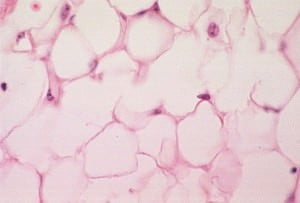Liposuction May Be Useful in Preventing Skin Cancer
 Recent information in a MedPage Today article shows that surgical fat removal prevents skin cancer in mice. This could mean that humans who undergo liposuction are at a decreased risk for skin cancer.
Recent information in a MedPage Today article shows that surgical fat removal prevents skin cancer in mice. This could mean that humans who undergo liposuction are at a decreased risk for skin cancer.
The study has shown such striking results that an immediate epidemiology study has been called for to determine if these results are representative of current patients who have had liposuction. This study was originally published in Proceedings of the National Academy of Sciences.
Researchers Show Link Between Weight Loss and Skin Cancer
This study was led by Dr. Allan Conney of Rutgers University. The mice involved were fed a high-fat diet, and routine fat pad removal was then performed on half of the mice, with sham procedures performed on the other half as the control. Following surgery, there was a 75% decrease in tumor volume and occurrence for the mice who had fat removal.
The study did not find significant effects for mice subjected to the same procedures yet fed a low-fat diet. For these mice, there were no differences in skin cancer rates or tumor volume based on the use of surgical fat removal.
It is currently unclear how this research will translate to human liposuction, nor is it completely clear what particular portion of the trial was the crucial element for skin cancer prevention.
Further studies will be necessary to determine if simple weight loss also prevents skin cancer, or if the complete removal of the fat cells during liposuction offers some unique benefits. The many different types of liposuction and various locations of treatment will also require study, as will liposuction performed in addition to other surgeries such as a tummy tuck.
Additionally, this research opens doors for a wide range of other possibly relevant effects of surgical fat removal. Dr. Conney speculated that, “It would be interesting to see if surgical removal of fat tissue in animals would prevent obesity-associated lethal cancers like those of the pancreas, colon, and prostate.”


